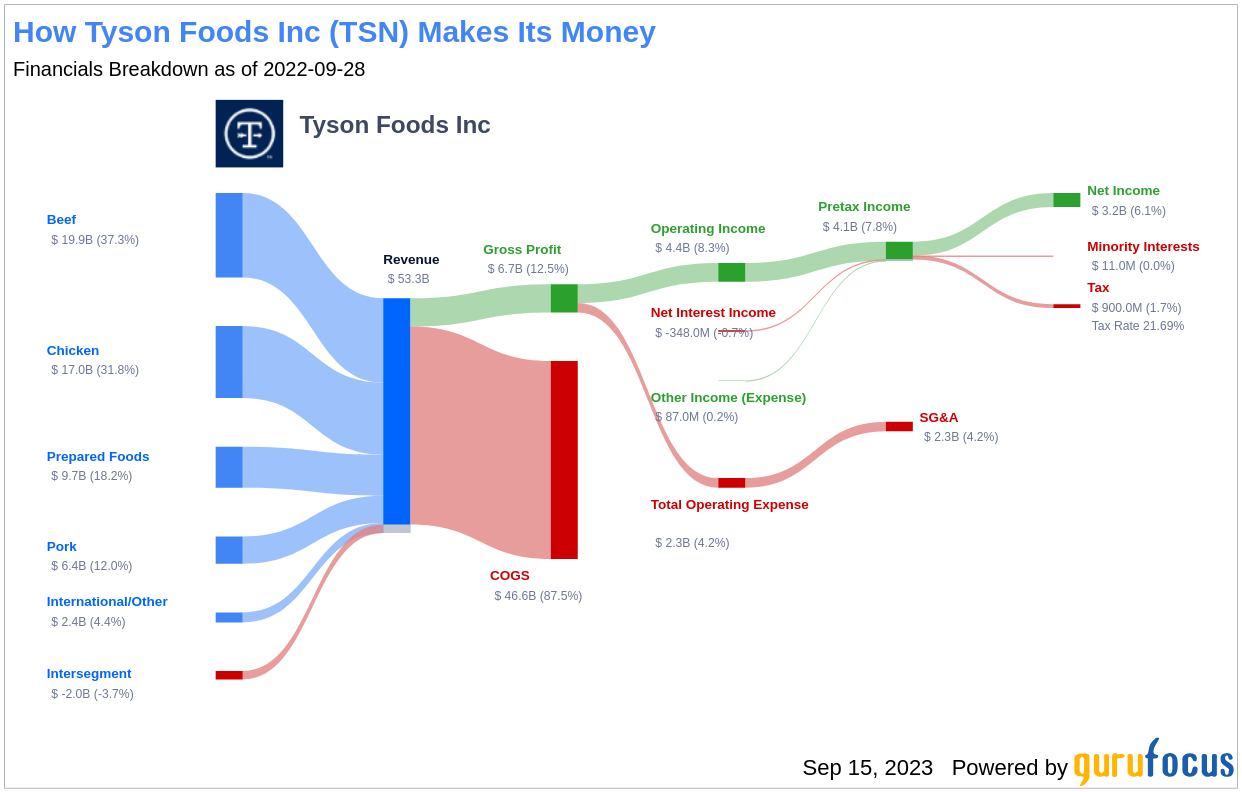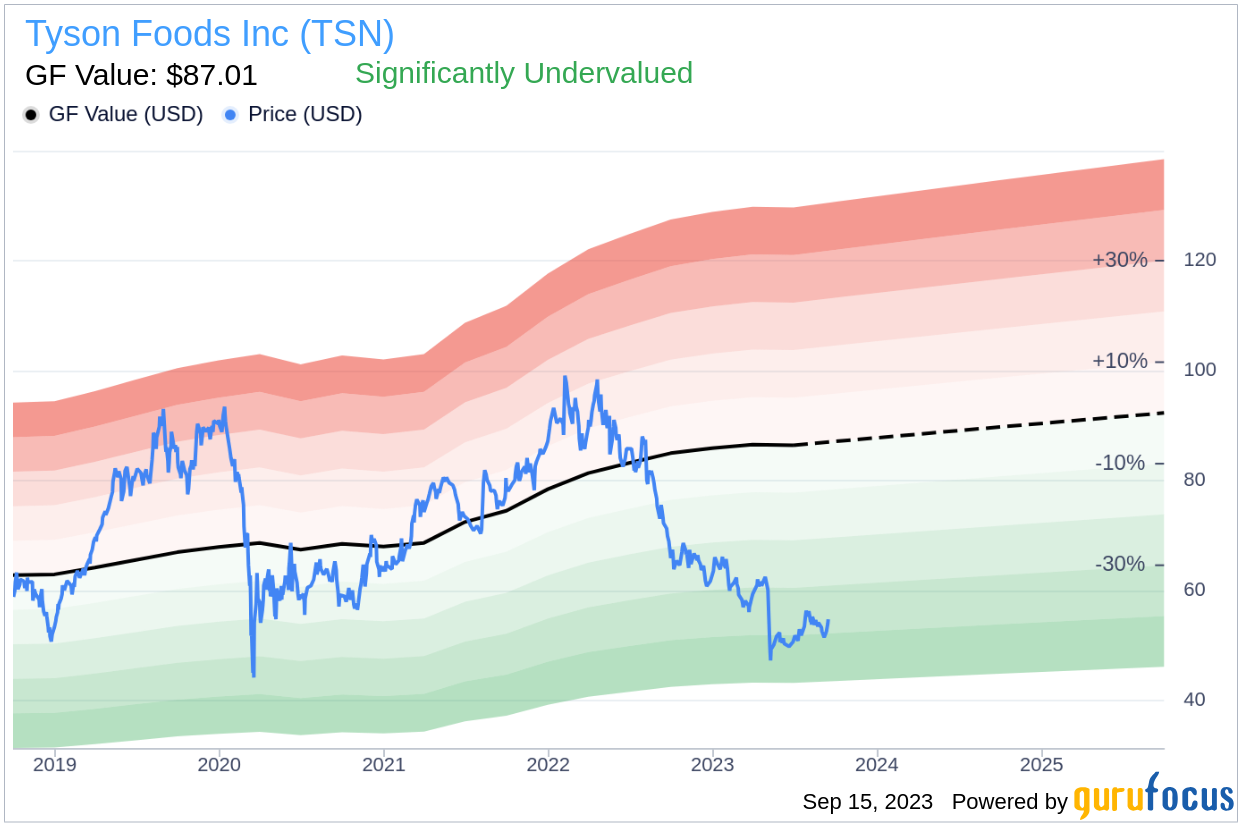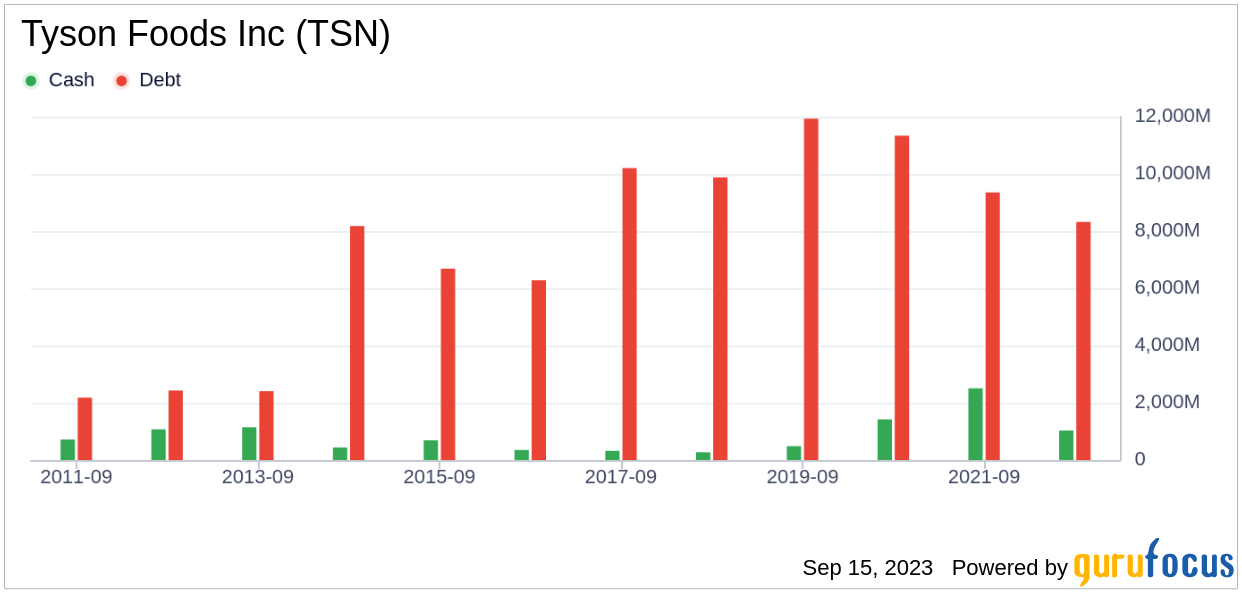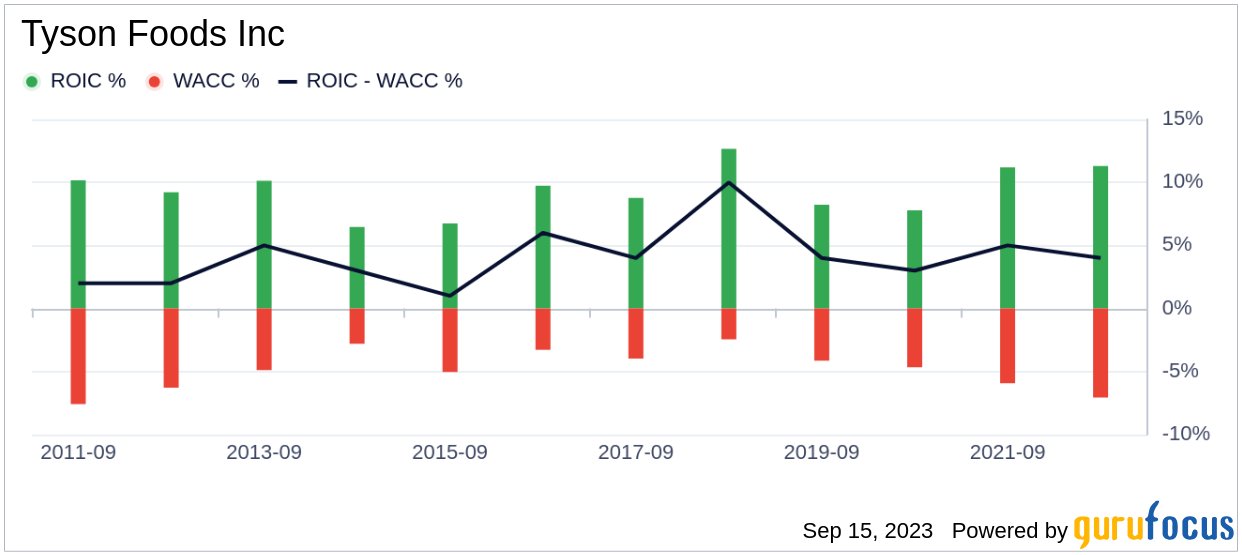Tyson Foods Inc (TSN, Financial) has recently shown a daily gain of 1.24%, and an impressive 3-month gain of 9.41%. With an Earnings Per Share (EPS) of 0.92, the question arises: is the stock significantly undervalued? This article aims to provide a comprehensive analysis of Tyson Foods' valuation, encouraging readers to delve into the details of this intriguing financial exploration.
A Snapshot of Tyson Foods Inc
Tyson Foods is a protein-focused food producer, selling raw chicken, beef, pork, and prepared foods. The company's two largest segments are chicken and beef, each comprising about one-third of U.S. sales. Prepared foods constitute roughly 20% of sales and include brands like Tyson, Jimmy Dean, Hillshire Farm, Ball Park, and Sara Lee. International sales account for just 5% of total revenue. The company's current stock price is $54.63, with a market cap of $19.40 billion. However, the GF Value estimates Tyson Foods' fair value to be $87.01, suggesting that the stock may be significantly undervalued.
Understanding the GF Value
The GF Value is a proprietary measure of a stock's intrinsic value, computed considering historical trading multiples, a GuruFocus adjustment factor based on past performance and growth, and future business performance estimates. The GF Value Line provides a visual representation of the stock's ideal fair trading value. If the stock price is significantly above the GF Value Line, it is overvalued and its future return is likely to be poor. Conversely, if it is significantly below the GF Value Line, its future return will likely be higher. Tyson Foods' stock appears to be significantly undervalued, according to the GF Value calculation, suggesting that the long-term return of its stock is likely to be much higher than its business growth.
Link: These companies may deliver higher future returns at reduced risk.
Evaluating Tyson Foods' Financial Strength
Investing in companies with robust financial strength reduces the risk of permanent loss. Tyson Foods has a cash-to-debt ratio of 0.08, which is worse than 81.47% of 1797 companies in the Consumer Packaged Goods industry. The overall financial strength of Tyson Foods is 6 out of 10, indicating fair financial health.
Profitability and Growth
Profitable companies, especially those with consistent profitability over the long term, are generally less risky investments. Tyson Foods has been profitable 10 over the past 10 years. It has a revenue of $53.30 billion and Earnings Per Share (EPS) of $0.92 over the past twelve months. Its operating margin is 2.41%, which ranks worse than 63.02% of 1817 companies in the Consumer Packaged Goods industry. However, the overall profitability of Tyson Foods is ranked 8 out of 10, indicating strong profitability.
Growth is a crucial factor in the valuation of a company. The 3-year average annual revenue growth of Tyson Foods is 8.2%, which ranks better than 55.96% of 1719 companies in the Consumer Packaged Goods industry. The 3-year average EBITDA growth rate is 13.6%, which ranks better than 62.53% of 1524 companies in the Consumer Packaged Goods industry.
ROIC vs WACC
Comparing a company's return on invested capital (ROIC) to its weighted average cost of capital (WACC) can also evaluate its profitability. ROIC measures how well a company generates cash flow relative to the capital it has invested in its business. WACC is the rate that a company is expected to pay on average to all its security holders to finance its assets. If the ROIC exceeds the WACC, the company is likely creating value for its shareholders. During the past 12 months, Tyson Foods' ROIC is 2.42 while its WACC came in at 6.77.
Conclusion
Overall, Tyson Foods (TSN, Financial) stock appears to be significantly undervalued. The company's financial condition is fair, and its profitability is strong. Its growth ranks better than 62.53% of 1524 companies in the Consumer Packaged Goods industry. To learn more about Tyson Foods stock, you can check out its 30-Year Financials here.
To find out the high quality companies that may deliver above-average returns, please check out the GuruFocus High Quality Low Capex Screener.




